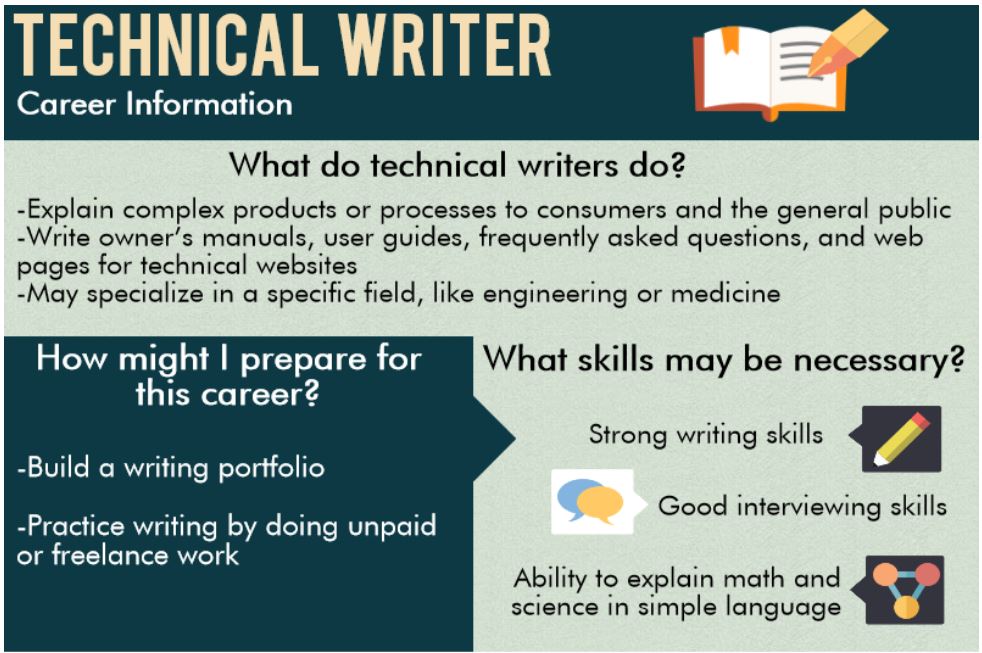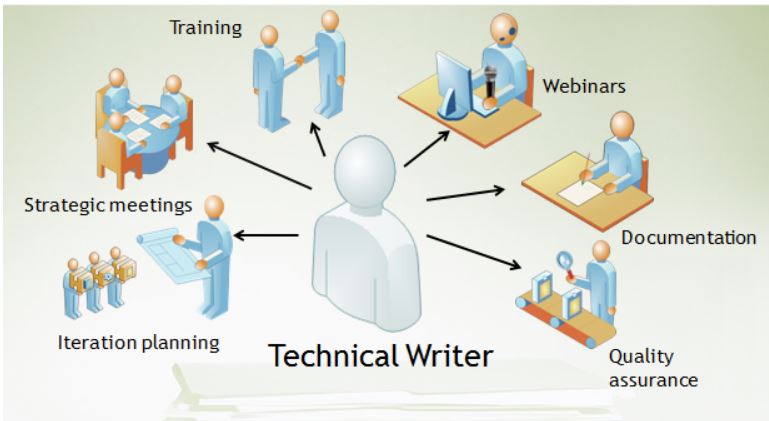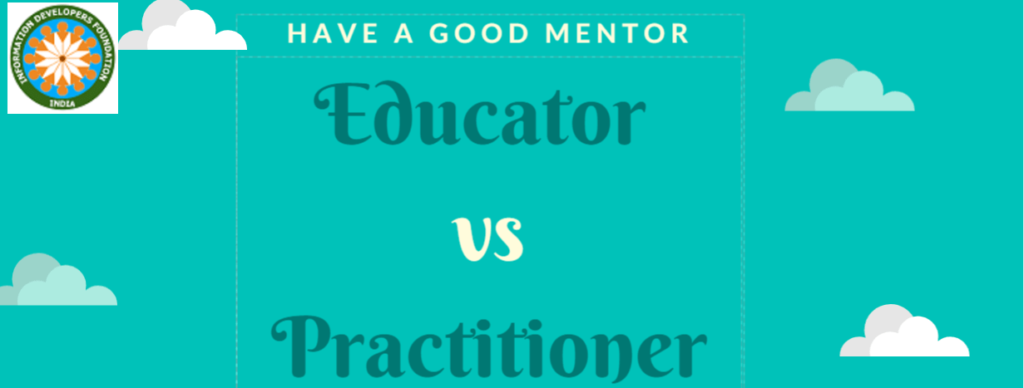Technical Writer Career Guide 2025: Roles and Responsibilities- A step by Step Guide
Are you new to technical writing or thinking about how to become a technical writer or learn technical writing? You must be wondering where to begin.
This post is mainly to answer the most frequently asked question when I get a call from aspiring technical writers or content writers.
- How to become a technical writer?
- How to get into the Technical Writing Industry?
- How do you get into Technical Writing?
- Trying to transition to Technical Writing, what do recruiters look for?
- Technical Writing Tips
- What is Technical Writing?
- How to switch from content writing to technical writing?
If you are a writer and dream to become a technical writer and work with the world’s most important technology companies like Google, Microsoft, Adobe, Amazon, Thales, then this blog post is for you.
If you are a writing nerd like me, you must have heard about this profession.
But, if you’re part of the other 99.9% of the world who isn’t super excited about this profession,” you’ve probably missed this news.
Technical writers are the second most paid writing professionals first is, of course, ransom writers. Growth projection is 20% in India and 11% in U.S.A (from the Bureau of Labor Statistics).
The prominence of technical writing in the IT sector can be known through this article too. Read it here
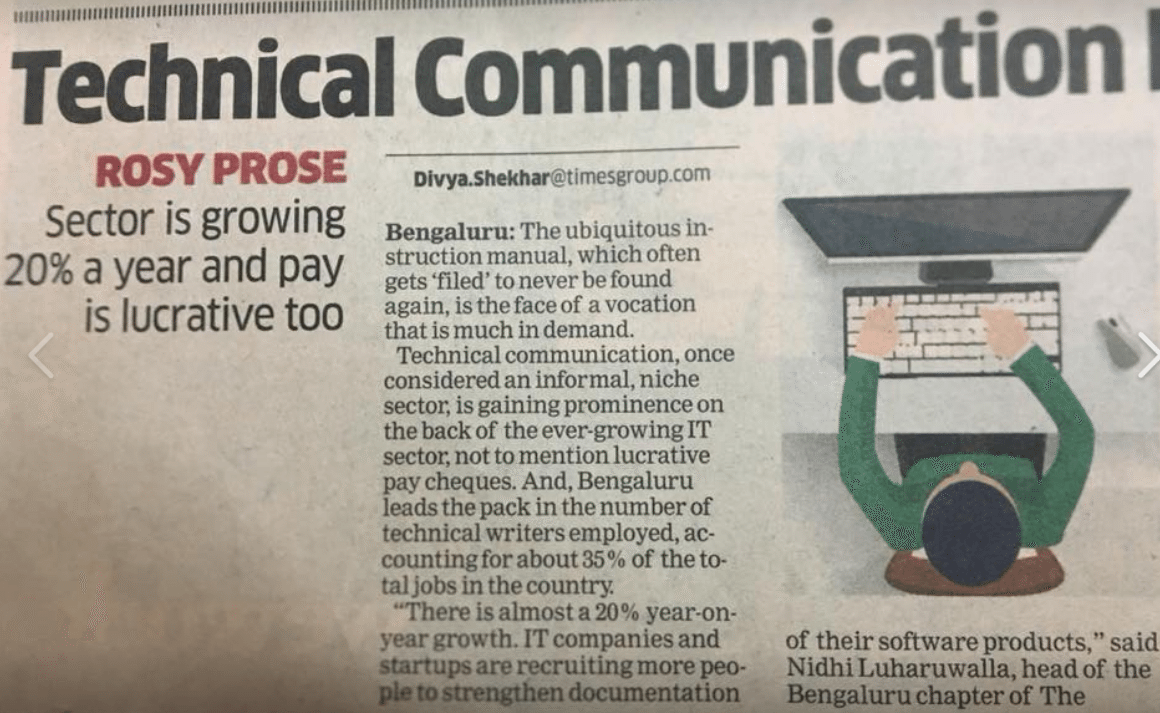
As a single writer, you can build a career as a full-time technical writer from the comfort of your home after work, during your afternoons, and on your weekends.
I don’t think that I’m overly dramatic when I say that technical writing is your shot at the life of your dreams.
“Writing is the painting of voice.”- Voltaire
Trust me — I would know. Till now I have shaped up the careers of many writers through our course and many other initiatives.
I want you to have as much fun at work as these guys, and I do. So, today I’ll introduce you to this world with my technical writing guide.
Note: Even if you’re already knee-deep, you can still learn a ton of new things.
If you’re interested in a particular topic, feel free to jump ahead:
- Overview
- Definition
- What do technical writers do?
- Who can become a technical writer?
- Where can technical communicators be placed?
- What are the important skills to be a successful technical writer?
- Resume of Technical writers
- What would be the average salary of technical writers?
- What is the career path of technical writers?
- How to start as a technical writer?
Overview
A perfect blend of language and technology is technical writing, wherein technology is made easy for people to understand through creating user manuals, online help, and documentation for future reference and proper functioning of the software. In short, it is the information development process.
Definition of Technical writer
If you’ve read my blog posts on technical writing, you already know that it’s different from other writing.
Not every technology writing is automatically technical writing.
Few definitions of technical writing are:
Before taking up a career in technical writing we should know the whole scenario of technical writing as a career, and this blog post will help you in it by discussing all the major questions that whirl the mind before focusing on the definite track.
-
According to Wikipedia
“Technical writing is any written form of writing or drafting technical communication used in a variety of technical and occupational fields, such as computer hardware and software, engineering, chemistry, aeronautics, robotics, finance, medical, consumer electronics, and biotechnology. It encompasses the largest sub-field within technical communication”.
-
According to US Bureau of Labor Statistics
“Putting technical information into easily understandable language is technical writing”
Want the drop-dead simple version of it?
Technical writing is an effort/process of simplifying the use of the product to help users to use it effecientely and effectively. Technical writers can take help of words, images, infographics, GIFs, videos to do so and chose different media to publish and deliver which is easily accessible and searchable.
It’s anything that you do to delight and help your customer to use a product. The customer can be internal or external.
This is a classical definition of technical writing now technical writers are more into the Information development process and wear different hats according to need.
History of Technical Writing
To become a technical writer it is good to know the history of the profession. In U.S.A more than 46,000 technical writers are employed and the first Association of technical writers (STC) was founded in 1953. In 2009, the United States Bureau of Labor Statistics recognized Technical Writer as a profession.
The rich history of technical communication goes back to the period of Aristotle around 322 BC. His works were considered as the juvenile form of technical writing, however, the first published English technical writing document was of Geoffrey Chaucer in the 14th century.
With the advent of the Industrial Revolution, a period from 1760 to 1840 the need for technical writing increased. This need was a result of requirements generated for skilled resources that could handle the machinery. It became necessary to illustrate to the workers how to use the machine in a simple language that can be understood by non-technical resources too.
Documentation became mandatory because it was becoming a Napoleon task to teach each worker verbally about the functioning of heavy machines.
The need for technical writers volcanized even more during the First World War and Second World War. The heavy weapons were to be used by soldiers not the technicians, so it became important to provide them the manuals to use it in the war field.
Most crucial fields like medicine, aerospace technology, military, computer technology saw advancement in that period and it accelerated the need for technical writers to explain and document the processes.
This led to gaining technical writer’s professional acclaim, and it emerged as an official job title Technical WRITER.
The postwar period was also not less rewarding. Writers were needed across different fields to register the processes as there was a rapid growth in the transport system, universities, libraries, etc.
The computer was losing its privilege of remaining in the hands of specialist only. Universities and large businesses were keen to make use of it for optimum results.
First computation technical document was the instruction manual of BINAC computer written by Joseph D Chapline in 1949.
Opportunities for technical writer increased even more when in 1947 transistor was invented. This invention led to the expansion of the computer in small businesses and in individual hands.
Computers becoming more common generated a pool of opportunities for technical writers as they were needed to explain the use of devices and to keep a written record of it.
In the 1980s, consumer electronic products entered the household and gave another kick to the requirement of technical writers.
In the present era, the computer has become the toy of every other hand. Digital communication has made things a lot easier than before. The writing format is also changing accordingly.
Hypertext, XML, graphics and many software tools are used by technical writers for documentation purpose. The techniques have improved and it’s getting better day by day.
Though India has over 10,000 technical writers there was no association until 2017, to let them come under one roof for better learning, networking, and knowledge sharing for mutual benefit. Few societies of other countries, however, worked in India.
The majority of technical writers are employed in Bangalore, Pune, Hyderabad, and Delhi-NCR.
STC-India chapter was started by Gurudutt Kamath in 1999.
In 2017, Information Developers Foundation was formed- first not for profit Indian society for technical communicators.
IDF has a sole motto to expand and strengthen the technical communicator community in the best possible way covering all the basic needs of technical writers ie. from training to placement and from network expansion to show your presence.
(Source: Wikipedia and STC)
What Technical writers do?
Technical writers are the person who develops the information provided in a simplified language to make it easily understandable to the people they are intended to. A technical language is difficult to understand by a common man. Technical writers convert them to make it easy for commoners to follow the instructions.
Technical writers are the optimized amalgamation of technology and English (language) to convert the complex into simple for the benefit of producer and the user both.
Contrary to popular belief, technical writers don’t just write user guides or manuals, but also contribute to the development lifecycle of the product. To understand the complete cycle of work read about Documentation development lifecycle.
Technical writers write user manuals, online help, white papers, APIs Doc, etc.
They do the documentation for a product or services for the internal user to end-user of the product.
Tech writers use tools to develop the information provided in a simpler language such as RoboHelp, Framemaker, MadcapFlare, SnagIT, etc.
Qualifications required to become a Technical Writer?
This can vary from geography to a hiring company. Typically any graduate with a flair for writing and technology can pursue technical writing. Good English is mandatory (or the language in which you will be communicating). For a more explanatory view, a list of eligibility criteria is given below.
Few companies give preference to B.Tech/BCA/MCA/BE students.
Recently-graduated students with a Bachelor’s degree in Arts, Science, Technology or Commerce.
MBA graduates can especially benefit.
Working people who need to switch their careers because of no career growth in their present job. A majority of this category belongs to the
- Content writing
- BPO sector
- Medical
- Transcription industry
- Journalism
- Technical Support
- Software Developers
- Software Quality specialists.
– Individuals who have stopped working for some time for family and relocation reasons and now wish to get back to professional life (has
proven very beneficial for mothers who have given up their careers to start a family)
– Self-motivated individuals who believe in sharpening and updating their skills for their professional growth.
– (We have even had entrepreneurs take up this program and hugely benefit their organizations.)
Information Developers Foundation Students Job Profiles and Qualification
Delegates with different jobs and qualifications join Information Developers for better prospects and a bright professional future.
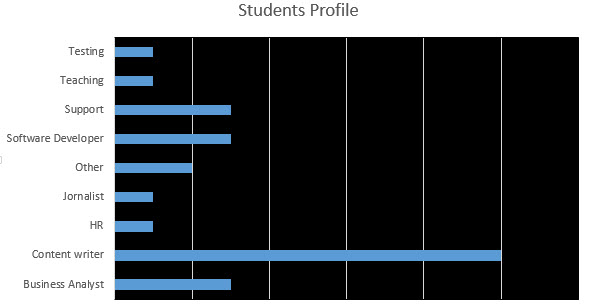
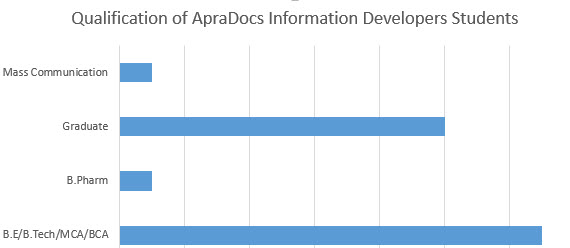
You can see that students from different careers and domains are joining technical writing.
Where Can Technical writers get placed?
Technical writing is crucial for every industry that needs documentation. As perceived it is not limited to the IT industry only.
The industries that hire technical writers are
- IT industry
- Manufacturing sector
- Aerospace
- Defense sector
- Service industry
- Customer support etc.
Some of the companies Hiring Technical writers
From the partial list of companies hiring Information Developers student, you will get a clear idea about companies hiring technical writing. In general product, companies hire more technical writers than service companies.
- Oracle
- Microsoft
- Adobe
- Amazon
- Caterpillar
- JCB
- HCL
- SAP
- NOKIA
- HP
- DELL
Resume of Technical writers
The first and most important thing about the technical writer or content writer’s resume should be error-free.All types of errors like spelling, grammar, formatting, consistency, etc. Please do not copy and paste the section of the resume and do not try to fake it.
Few companies consider your resume and cover letter as a sample of your work.
- The CV should be easy-to-read, well laid out, and not over-crowded.
- It should be customized for the job you are applying to.
- You should highlight the relevant skills you have for the job.
- It should be a concise document with no grammar or spelling mistakes.
- It should not be exaggerated and read honestly.
For more detail, you can read both blog posts about the resume.
10 Kick ass Resume writing tricks for technical writers
FREELANCE TECHNICAL WRITER RESUME
What is the average salary of a Technical Writer?
According to a survey done by Economic Times in 2017 Technical writing is among the emerging high payout jobs in India.
The average salary also fluctuates according to the city and country you are working.
Typically, the starting salary of Information Developers students are from INR 3-5 lac/annum.
In the U.S.A according to Labour of Beaureu static average hourly rate is approx $36/hour and mean annual wage is $74,445. You can read more on the website. You can also refer to the Indeed website.
Every year STC-India conducts a salary survey. You can download the detail from STC-India website.
What is the career path of a technical writer?
In the IT organizations, the career path of a technical writer is similar to other development team members.
- Intern technical writer
- Associate technical writer
- Technical writer
- Senior technical writer
- Lead technical writer/Principal technical writer
- Documentation manager
- Senior Doc manager
- Director
Similar titles for technical writers
Like any other profession, the IT company title and designation can vary.
- Technical Communicator
- Technical Author
- Technical Content writer
- Content Developer
- Information Developer
- Information Architect
- Information Engineer
- Information Designer
- Documentation Specialist
- Documentation Manager
- Career growth for technical writers
A technical writer starts off as a technical writer, become a senior or principal technical writer and after having an experience of around 10 years they move towards the management side.
They can be the scrum master, Documentation manager, or content strategist too. They normally manage other technical writers and analyze their writings and suggest better ways from their experiences.
The highest paying advanced career path is of content strategist though the requirements are very few in the industry they are the creamy layer if calculated on the scale of earnings.
A week in the life of a Technical Writer
My week typically look like this.
- I start my day by updating JIRA.
- Attend daily scrum.
- Write new features and maintain existing documentation.·
- Work closely with developers, product architects, and product owners to create technical documentation with a high focus on clarity, completeness, accuracy, and usability.
- Obtain product information from agile meetings, specifications, supplemental material, and discussions with project engineers.
- Participate in peer review processes to improve documentation quality.
- Contribute to develop and maintain existing documentation processes, standards, checklists, and templates.
- Suggest screen labels and error messages with a focus on improving the customer experience (UX).
- Create graphics to supplement the flow and presentation of the content.
- Help in translation and localization processes.
You can watch the video of Amruta Randa to take a feel of typical technical writer day.
Typical Job description for technical writing
General Information
Job title: Consultant – Senior/Staff Technical Writer
Job Family: Development
Region: Global
Role: Mid –Senior Level (L2)
Number of Positions: 1
Position Summary
A mid-level position, responsible for providing front-end technical support to customers and proactively enabling customer self-service.
Job Overview
For reference, I have taken this example from LinkedIn.
As a Technical Writer at XYZ, you will be responsible to support XYZ Global development team by working on software documentation for system administrators and users. XYZxcels in developing product related to Backup and Storage domain and the suitable Writer needs to have a good understanding of terminology and process required to understand database and back-end work in software development.
Work Experience
• Experience for Senior Staff Technical Writer: 5-9 years
• Experience for Staff
Technical Writer: 2-5 years
Location: Noida
Mandatory Skills:
1. Good technical understanding of SDLC and DDLC.
2. Minimum 6 months experience in using MadCap Flare tool for documentation.
3. Excellent knowledge and experience of authoring in HTML and XML editing tools.
Description of General Work:
• Working independently as well as part of a large distributed team.
• Handling one or multiple products/projects depending upon the requirement.
• Research and write documentation for new or existing products.
• Work closely in Agile project development with development, product management, quality assurance, user experience/design, training, and support personnel.
- Good Information gathering skills. To know more about this skill watch my video about Information gathering.
Preferred Skills
• University degree or Technical Writing college diploma in relevant field.
• Excellent oral and written communication skills.
• Knowledge of how to create and use graphics in technical documentation.
• Knowledge of MS-Visio.
• Knowledge of authoring tools, such as Framemaker or RoboHelp
• Experience with bug tracking tools, such as JIRA.
• Ability to write and design minimalist information.
• Experience of working in an agile development process.
Best books to learn Technical writing for beginners
Any day Microsoft Manual of Style (MSTP) is a mother of all the technical writing books. Microsoft Manual of Style and The Chicago Manual of Style is a must for you. Get MSTP now. Just click on the image and get it now I repeat if you are serious about your career.
Few more good books for technical writers.
Thank you to Amruta Ranade (Cockroach lab, U.S.A) and Gyanesh Talwar (Adobe) for giving a valuable recommendation on our Facebook group.
How to start as a full-time technical writer?
By now you must have a fair idea about technical writing and it is time to take action.
- Read the job description carefully.
- Do gap analysis also you can go for SWOT analysis to understand what you have and what you need to learn.
- Start learning. Google is your best friend to start slowly and be focused.
- You can attend local meetups, attend webinars, and watch Information Developers recorded webinars.
- Join the online forum on Facebook. IDF Facebook group is 1000 members strong and growing every day. Post your query.
- Update your resume.
- Prepare a sample work.
- Contribute to open-source documentation like GitHub. To know more, you can watch this video.
- Start applying for an interview. Hopefully, you will get an interview call. If you crack the interview world is yours.
- God forbid if you are not able to clear your interview to find a mentor (You can consider me). 🙂
- You can also join a course designed by me with the support of other super senior professionals. For more detail, about our course, you can visit the course page or call me directly on my personal number 7840841999 now.
I provide this training live online, so geography location is not an issue. The only thing I need is a learning attitude.
After training, you can apply for the job of a technical writer and can become one with a good starting salary. This worked for all it will work for you also, only focus and hard work are required.
Suggestion from the Industry experts to the technical writer aspirants:
This is taken from the Information Developers Foundation Facebook group.
Amruta Ranade Focus your learning on “technical” and “writing” skills, not tools.
Sumit Batra. Try learning the basics of Technical Writing and the rest will fall in place.
Ramesh AiyyangarRahul, Congratulations! on planning to write a blog for beginners. My simple suggestion to beginners would be to start a blog on Technical Communication<TC> and start writing. Write a post every day about TC. This will ensure that you read, reflect, research, analyze, learn, and write whatever you learned about TC in your day-to-day activities. You will keep yourself updated and relevant. This will also increase your job potential. You will have a lot of fun while you write. So, the best way to be successful as a TC is to write, write and write. Amruta Ranade<tagged in the original post> is also a student of TC and has started her own blog. She shares some excellent posts regularly. The right<write> way to success.
Sangeeta Raghu Punnadi Always “Technical: understand what you are “Writing”.. If you don’t understand, how will the end user understand!
Rinni Mahajan “To be a good Writer, you ought to be a good Reader first.”
“While writing keeps your audience in mind. Before starting as a Tech Writer ensure that this is what you really dreamt of doing.”
Punit Shrivastava Writing is like hunting. To evolve as the best lion/lioness in the field, learn about the hunting area (domain) properly, understand the situation (product+standards) thoroughly, attack (write) only when the object (concept) is within range (well understood).
Kartikeya Baid Dwivedi Complete, accurate, understandable and findable information is the key. Always remember these tenets.
Shubham Singhal In starting I most of the time struggled with the content part. What to include and what to avoid. There was a feeling of incompleteness and fear of lacking any important information. I used to scratch the content and start again multiple times. So here is what ai did:
1. Used copy and pen to write down all points that should be present in the document.
2. I searched for a document on the internet that I found very similar to my requirements.
3. Created my document very similar to that document.Automatically my document was well structured and completely informative.
Jigyasa Kulshrestha Focus on your writing skills, go to the basics of writing and try to understand what writing flair is. Read at least 3 times what you write. Writing tools are not rocket science, can be learned easily during the job.
Conclusion
By now it must be clear to you that technical writing is one of the growing and highly paid writing professions. The majority of technical writers work with product IT companies. Age and qualification are not the barriers only your ability and openness to learning and good command over the language is an essential skill.
If you want to master the skill of technical writing feel free to call me on 784084199 and let us start. If you want to know more about my training visit the training page.

